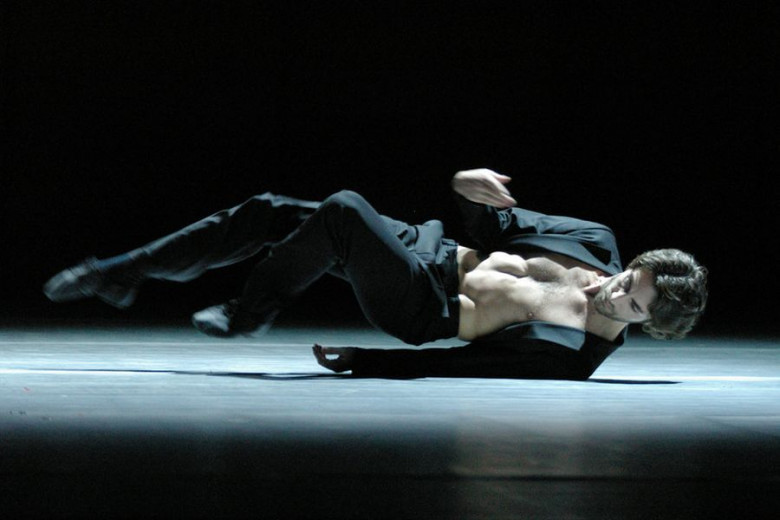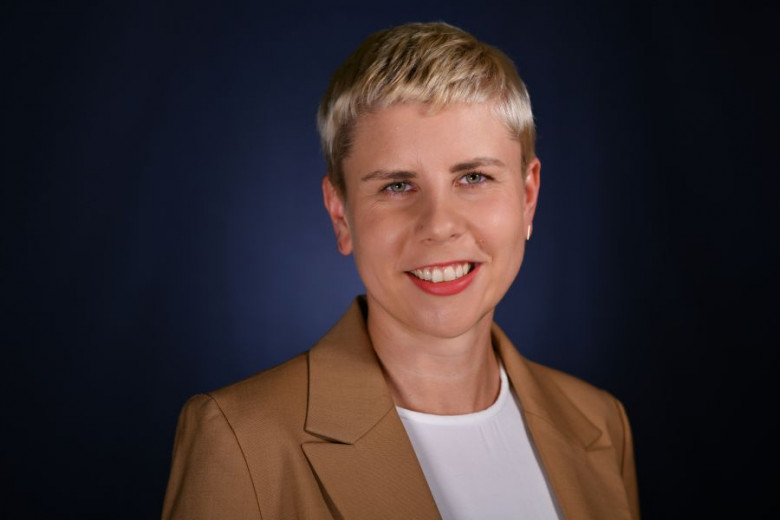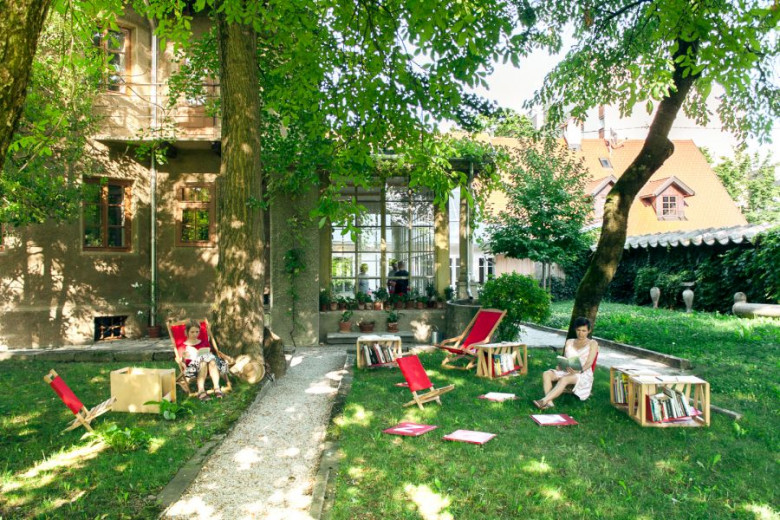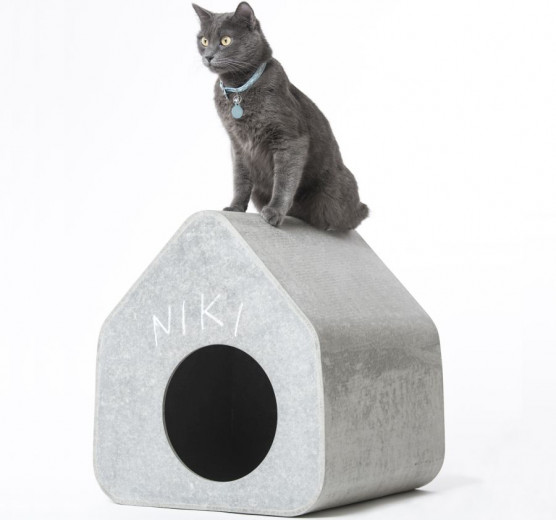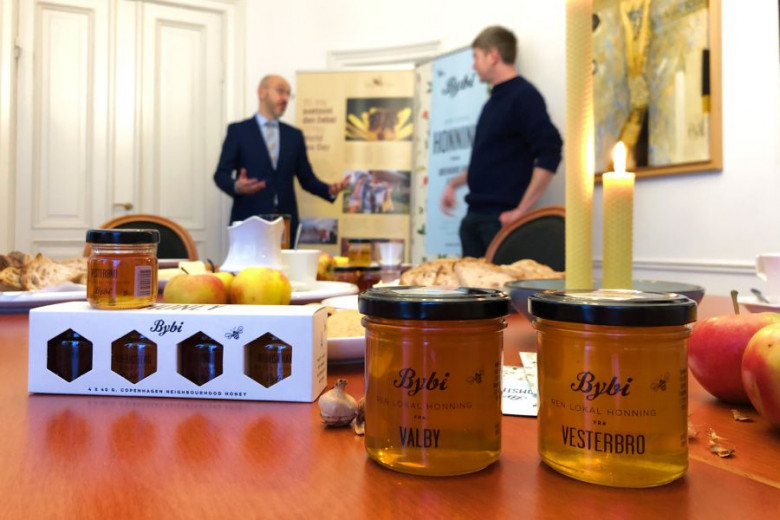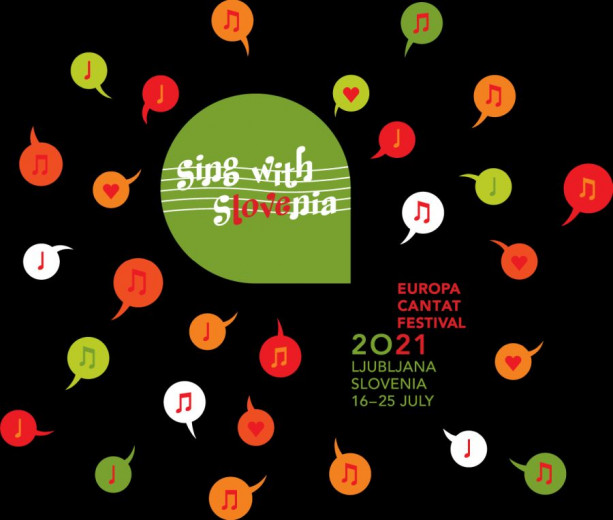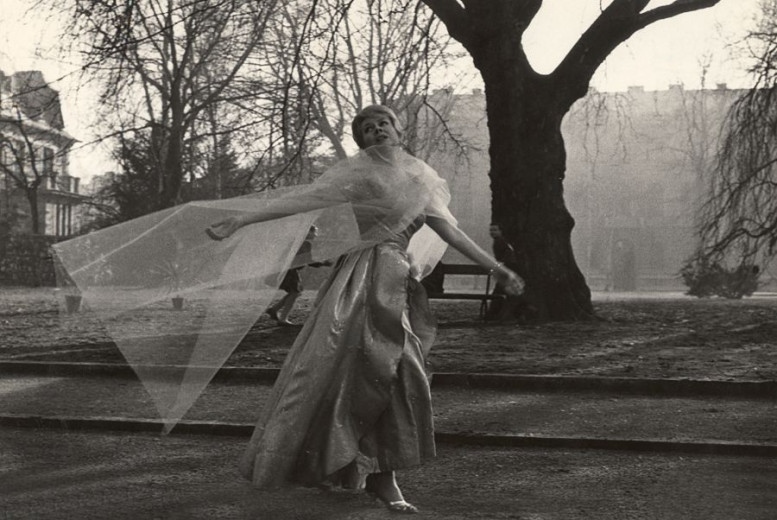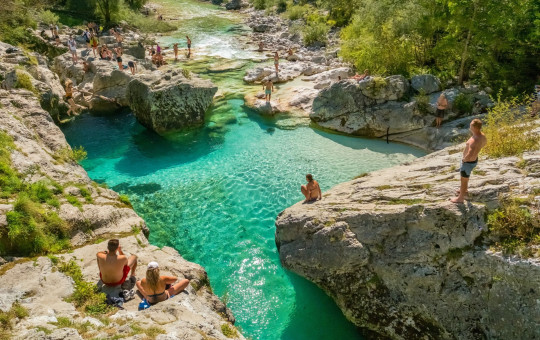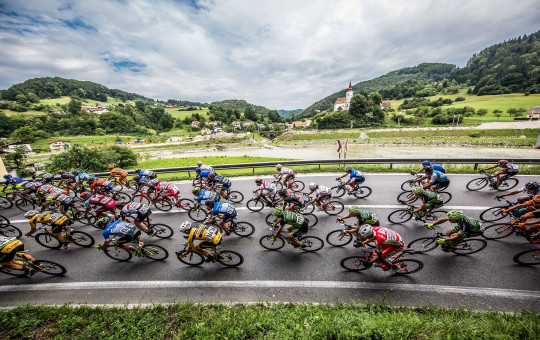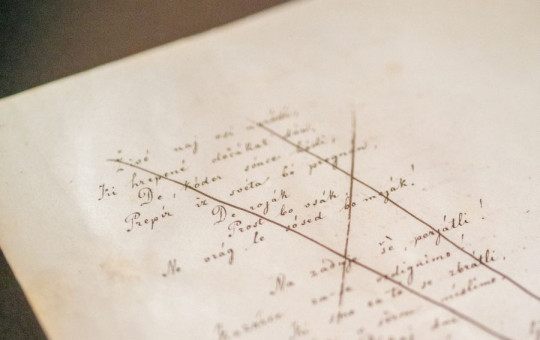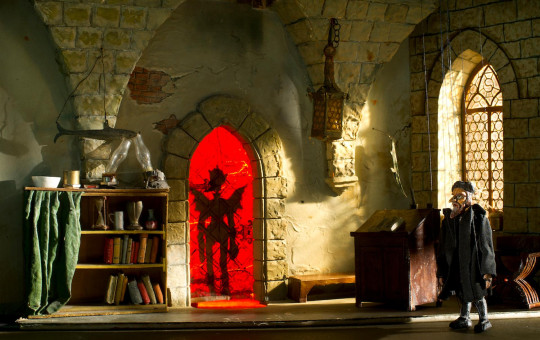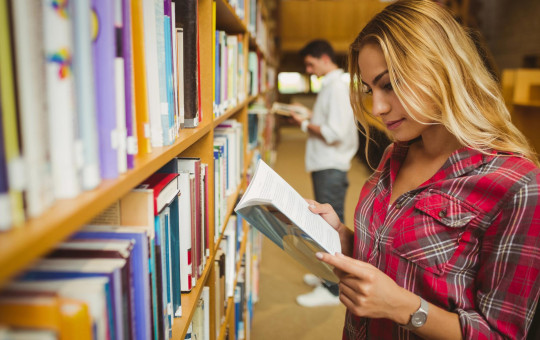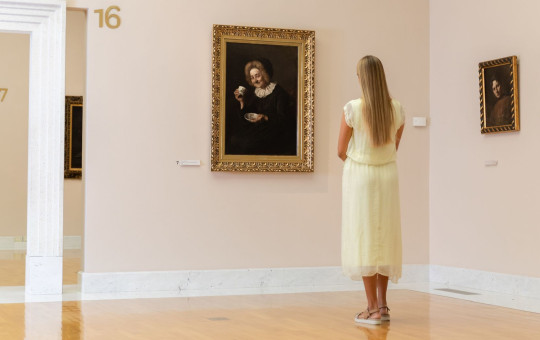During the Slovenian Presidency, a diverse cultural and promotional programme will take place in many European cities and at various locations around the world. The aim of the exhibitions, concerts, debates and other events is to showcase the wealth of Slovenian creativity and how it helps to promote European values and overcome the current social challenges we are facing.
The programme is designed to promote integration, intercultural dialogue and active public participation through events and various topics that Slovenia will prepare and present. Many events are related to the key priorities of the Slovenian Presidency – to build a resilient European Union, to promote the digital and green transitions, to ensure sustainable development, and to strengthen partnerships and dialogue with European neighbours.
Through promotional activities, Slovenia wishes to present itself as a creative country focused on sustainable development and as a one that through its activities has contributed significantly to the European Union. Thirty years after gaining independence, Slovenia is also taking over the Presidency of the Council of the EU. The path that the country has walked in these three decades is a shift from independence and international recognition to membership in international organisations and the European Union, from its first Presidency of the Council of the EU in 2008 to membership in the euro and Schengen areas.
The activities mentioned below tell the story of “smart” Slovenia and highlight where the country stands out in the fields of artificial intelligence, science, design, etc. They also tell the story of a creative and active Slovenia, which is not afraid of challenges and is an active member of the European Union. During the Presidency of the Council of the EU, individual stakeholders or institutions will present their past achievements in their fields, open discussions and debates, and remove borders.
In December 2020, Slovenia began its activities in this regard at the Vatican, where it erected and decorated the central Christmas tree. Slovenia will continue to organise exhibitions, concerts, discussions and projects that will leave their mark.
A detailed calendar of events is available on the website of the Slovenian Presidency of the Council of the EU 2021.
THE WATER MAN CONTEMPORARY BALLET PERFORMANCE
Bled Island, 1 July 2021
The premiere performance of The Water Man (Povodni mož) being staged by the Slovenian National Theatre Maribor on Bled Island is, in itself, a unique theatrical awakening of the island.
The central cultural event marking the beginning of the Slovenian Presidency of the Council of the EU, the contemporary ballet adaptation of The Water Man choreographed by the renowned Edward Clug and performed by the soloists and ensemble of the Opera and Ballet of the Slovenian National Theatre Maribor, invites spectators from all parts and cultures of the old continent to this sacred place to breathe in the air of our ancestors, gaze at the surface of our future and immerse themselves in our music, dancing together in the heart of our homeland.
On this occasion, the old steps that lead the human spirit all the way up to the last, ninety-ninth one, will welcome spectators to a natural amphitheatre, gently whispering in their ears the verses written by France Prešeren, whose poetic inspiration still stirs the depths of our consciousness and collective memory to this day.
Prešeren's The Water Man acts as a portal of time and space for our journey on the sacred Bled Island, which will be extended by a round stage, the island's very own moon. Young men and women will dance to songs of passion and spin in a storm of love under the magical light of the rising moon.
A hole in the middle of the scene creates a tiny lake within Lake Bled, which, for a moment, will change and transform its island into a place of worship, a temple of a kind, where ancient wisdom and cultural heritage intertwine with the challenges, zeal and hopes of today's generation.
EUROPE READR
A free digital platform with an edited selection of European literature on life in the future
From 1 July to 31 December 2021, a selection of literary works from all EU Member States will encourage critical thinking across societies about the world we wish to live in. At the intersection of literature, sustainability and digitalisation, the project will create a public space for exchanges on shared European values and the European Green Deal.
Europe Readr was initiated by Slovenia and co-created by EU Member States through EUNIC – European Union National Institutes for Culture. In 25 countries around the globe, EUNIC clusters will bring Europe Readr to life with a series of activities in cooperation with local cultural sectors. SINFO talked to EUNIC Director Gitte Zschoch on the eve of the project’s launch.
What do you like most about Europe Readr?
Europe Readr is enacting something that I think highly relevant for our network: It is initiating collaboration between our members as part of the EU Council Presidency programme. I like that a presiding Member State chooses to co-create its flagship cultural project together with EUNIC members. I also like that it links itself to previous Presidency projects, notably to Germany’s Earth Speakr. I hope this European spirit will be picked up and advanced by future Presidencies.
How does Europe Readr contribute to the EU's cultural relations?
EUNIC brings people across borders together through culture. We want to engage in joint learning, joint creation. This is what we call “cultural relations”. By not only focusing the EU’s external action on security and economy, we create links and relationships that impact people’s lives, bring them closer and reinforce their intercultural understanding. The values that the EU stands for are shared by many people in the rest of the world, such as freedom of speech, critical thinking, education and sustainability. Europe Readr invites us to think about and practice them.
Europe Readr addresses life in the future of being. What is culture’s role in creating this?
Culture and the arts open up a free space of debate, imagination, critique, provocation, utopia. We need to allow spaces like that to flourish, and we need to support artists to freely engage along those lines without an expectation of a certain outcome. If these parameters are given, then our societies can grow, become richer, more creative and resilient, and contribute to providing answers to the questions of our time on issues such as equity, equality, freedom, peace, and prosperity.
ARTIFICIAL INTELLIGENCE – OUR FUTURE?
A series of international debates on artificial intelligence from different societal angles
In a desire to contribute to the development of the high-quality and ethical use of artificial intelligence, trusted by everybody, the Slovenian Presidency of the EU Council and the International Research Centre on Artificial Intelligence under the auspices of UNESCO (IRCAI) have jointly designed an International Debate Series. It will take place in ten cities around the world: Abu Dhabi, Berlin, Brussels, Bucharest, Geneva, Ljubljana (Digihack), Ottawa, Paris (at OECD and UNESCO), Tel Aviv and Tokyo.
Experts, universities, governments and businesses will join hands to create a network of excellence and build an international agenda for European AI and Sustainable Development. Livestreamed and covered by local and social media, the debates will be accessible to the broader public. In the cultural centre Bozar in Brussels, for instance, twelve EU Member States will organise a conference called “The Future of Living”, focusing on the synergies between the arts and AI. To show them in practice, some leading Slovenian artists will present their most recent works in the realm of artificial intelligence at the exhibition of the awarded STARTS projects in Bozar Lab.
THE FUTURE OF LIVING
An exhibition of contemporary Slovenian design production, local materials and sustainable principles
In the International Year of Creative Economy for Sustainable Development, the exhibition showcases the central role of design in sustainable development and calls for the green transition.
It demonstrates the innovative ways in which Slovenian design responds to future challenges with products that combine local materials with traditional craftsmanship.
After its launch in Vienna, the exhibition will continue its journey to Berlin, London, Zagreb and other destinations around the world. Developed in collaboration between the Centre for Creativity, the Ministry of Foreign Affairs and the Ministry of Culture of the Republic of Slovenia, it is one of the main cultural projects of the Slovenian Presidency of the EU Council.
The exhibition features a selection of products that received the “Made in Slovenia” mark of design excellence. They foresee the future of living in which raw materials are no longer available in abundance, production methods and human resources need to be rationalised, and products are adapted to a new generation of users who want customised solutions.
BEES – AGENTS OF CHANGE
In 2018, Slovenia was at the forefront of the proclamation of the World Bee Day (20 May) by the UN General Assembly. Since then, our diplomatic network has – year by year – engaged with partners worldwide to reinforce the international awareness of the central role of pollinators in sustainable development. In 2021, traditional Slovenian beehives will be placed in twelve countries around the world as a symbolic gesture to underline the urgent need to step up the activities to protect bees and other pollinators.
Moreover, Slovenia will realise more than fifty projects around the globe in cooperation with local partners, from educational activities and awareness-raising campaigns to development projects, empowering vulnerable social groups through beekeeping. In the International Year of Creative Economy for Sustainable Development, Slovenia will put special emphasis on the central role of creatives in raising awareness and bee protection activities. As European Region of Gastronomy 2021, it will shed light also on the important place of bee products in gastronomy – and on their health benefits. Honey breakfasts will be organised in around thirty locations worldwide.
THE MAD HATTER'S CLOSET EXHIBITION
Brussels, July–December 2021
For over thirty years, the Slovenian costume designer Alan Hranitelj has been designing for plays, operas, classical ballet, contemporary dance, film and exhibitions. His opus so far includes over 400 costume designs and collaborations on various artistic projects.
He has won numerous awards for his work, both at home and abroad. In 2020, he received the highest national award for cultural achievements, the Prešeren Fund Award, for his retrospective exhibition Parallel Worlds 2006–2019.
Part of this exhibition, called The Mad Hatter's Closet, shows the author's insight into the infinitely colourful world of patterns, materials, structures and reflections. The author has created an entire universe from classic, mostly monochromatic men's shirts, waistcoats, ties, shoes, hats and cuff links. He upgraded, modified and completed his existing fabric samples with various geometric shapes using computer technology. They intertwine with numerous images drawn from the plant and animal world. Each piece comes alive within its own pattern. With the help of duplication and mirrors they seem to undulate in all directions, having a magical and psychedelic effect on our senses, taking us to parallel worlds. In the making of The Mad Hatter's Closet, Alan Hranitelj has outdone himself by combining the artisanal perfectionism of handicraft and his exceptional artistic skills.
Twenty display cases from The Mad Hatter's Closet will be exhibited in the Justus Lipsius building.
EUROPA CANTAT FESTIVAL
Ljubljana, 16–25 July 2021
This summer, Slovenia will host the Europa Cantat Festival. Ever since its inception in 1961, the festival has been hosted by a different European city every three years. The international committee of the European Choral Association (ECA-EC) was impressed by the candidacy of the Public Fund of the Republic of Slovenia for Cultural Activities, and the festival will therefore take place between 16 and 25 July 2021 in Ljubljana.
The festival welcomes all choral singers, conductors, composers, publishers and choral enthusiasts, and offers an excellent opportunity to anyone who would like to become more familiar with choral music.
Due to safety concerns in light of the COVID-19 pandemic, the content of the festival will be slightly changed and carried out in a shorter period of time than originally planned. The format of the festival will also be adapted to the situation, as a significant part of it will be held digitally online, while the opening concert of Slovenian choirs will take place in Congress Square in Ljubljana.
The President of the Republic of Slovenia, Borut Pahor, and the European Parliament are the honorary patrons of the event.
SLOVENIAN FILM RETROSPECTIVE
Brussels, December 2021
In December 2021, a selection of classic Slovenian films from the beginnings of Slovenian film production to the present day will be shown in cooperation with the Royal Belgian Film Archive in Brussels. The selection spanning from the silent beginnings to films made by the new generation of young creators who are successful in Europe and around the globe, presents the historical and aesthetical development of Slovenian cinematography, which is marked by the distinct voices of its authors with a special, often critical attitude towards society.
This film and music event will be an introduction to the final part of the promotion of Slovenian culture and creativity at the beginning of December 2021 in Brussels. The screening of the first Slovenian feature film In the Kingdom of the Goldhorn, directed by Jan Ravnik in 1931, will be accompanied by live music. This will be followed by a selection of films showcasing the most prominent filmmakers and films from the 1950s and the 1960s New Wave period, expressing elements of social criticism and personal views of the post-war socialist reality. The 1980s period is marked by alternative approaches to film production involving authors' personal and openly critical reviews of social and political events. The end of the 20th century gives rise to a new generation of filmmakers with unique and personal stories involving Slovenian society, which coincides with the beginning of Slovenia's independence.
This retrospective aims to provide an interesting overview of the development of Slovenian cinematography, from its silent beginnings to contemporary production integrated into the European film scene. In addition, it offers a unique insight into Slovenia's social and historical development, as the making of the film In the Kingdom of the Goldhorn dates back to the Kingdom of Serbs, Croats and Slovenians, while the overview will be concluded with films made in an independent and sovereign state.
Date: 30. May 2022
Time to read: 5 min

